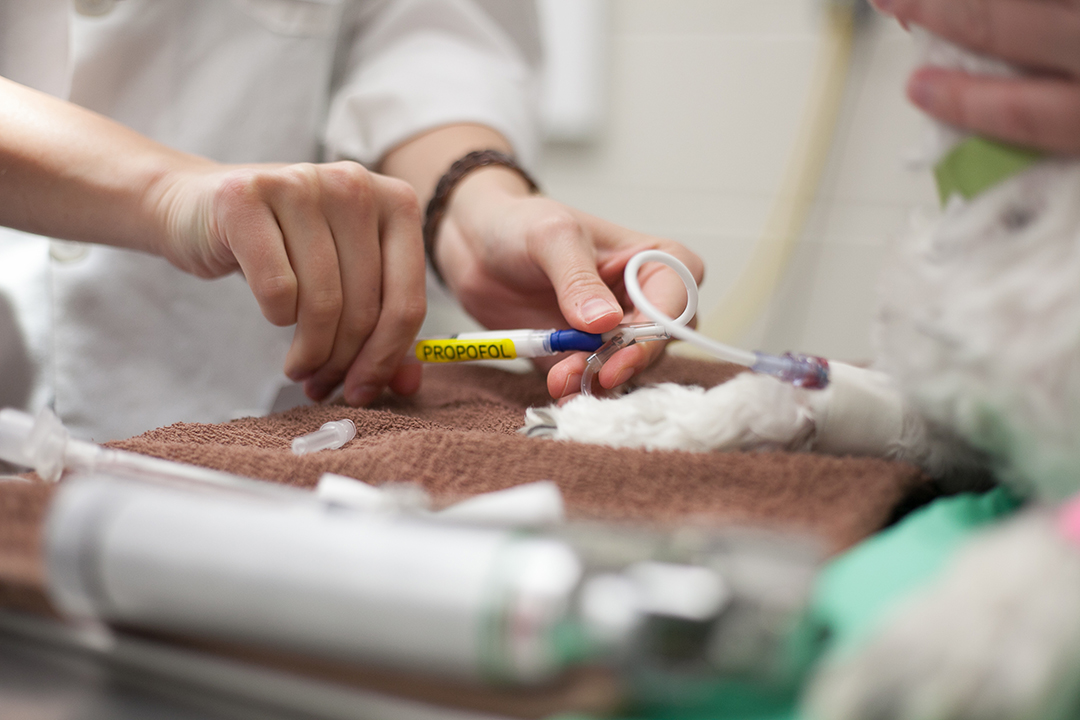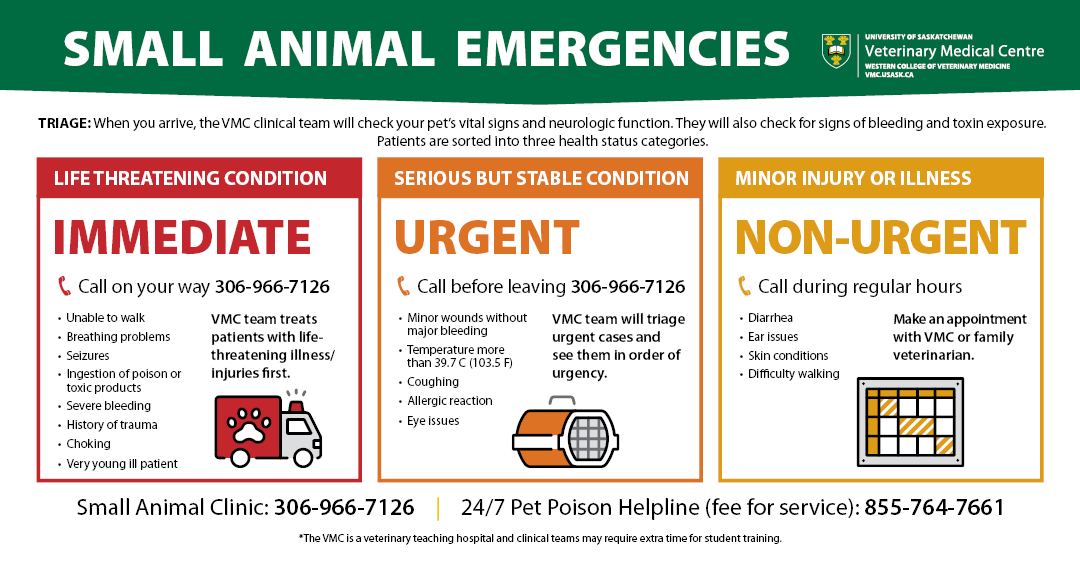
Small animal ER only accepting critical emergencies: May 19-20
Due to a high volume of emergency cases, the WCVM Veterinary Medical Centre's emergency and critical care service can only accept small animal patients that are considered in the "red zone" (in a life-threatening situation) from 10 p.m., Thursday, May 19, to 8 a.m., Friday, May 20.
During this period, the veterinary teaching hospital will temporarily restrict admissions to its small animal emergency and critical care service because of the high load of cases in the hospital. Staff will only be looking after in-patients and incoming animals that are seriously ill or injured.
- Alert your clients. Please do not advise your clients to bring their pets to the VMC for emergency care during the night of May 19-20 unless their animals are critically ill or injured ("red zone" in chart below).
- If you have clients whose pets are experiencing major health issues, tell them in advance about the temporary restriction of admissions at the VMC's emergency and critical care service.
- Overnight call. If possible, please organize and provide emergency call for your veterinary clinic's clients during the night of May 19-20.
- VMC's message to owners. If owners call or bring their animals to the veterinary teaching hospital during this period (10 p.m., May 19, to 8 a.m., May 20) and their pets' condition is considered urgent or non-urgent (orange and yellow zones in chart below), VMC staff will advise them to contact their regular veterinary clinic for emergency care or to return to the WCVM Veterinary Medical Centre at 8 a.m. on Friday, May 20.
- Phone triage. For an emergency, VMC clinical team members will be available by phone (306-966-7126) overnight (May 19-20) to consult with animal owners about next steps.
If the VMC must restrict entrance to its emergency and critical care service for additional nights in the future, the veterinary teaching hospital will send another message to the veterinary community and to the public as soon as possible.
The VMC clinical team thanks the veterinary community for its understanding and support. If you have questions or concerns, please contact Dr. Steve Manning (stephen.manning@usask.ca; 306-321-5923).


